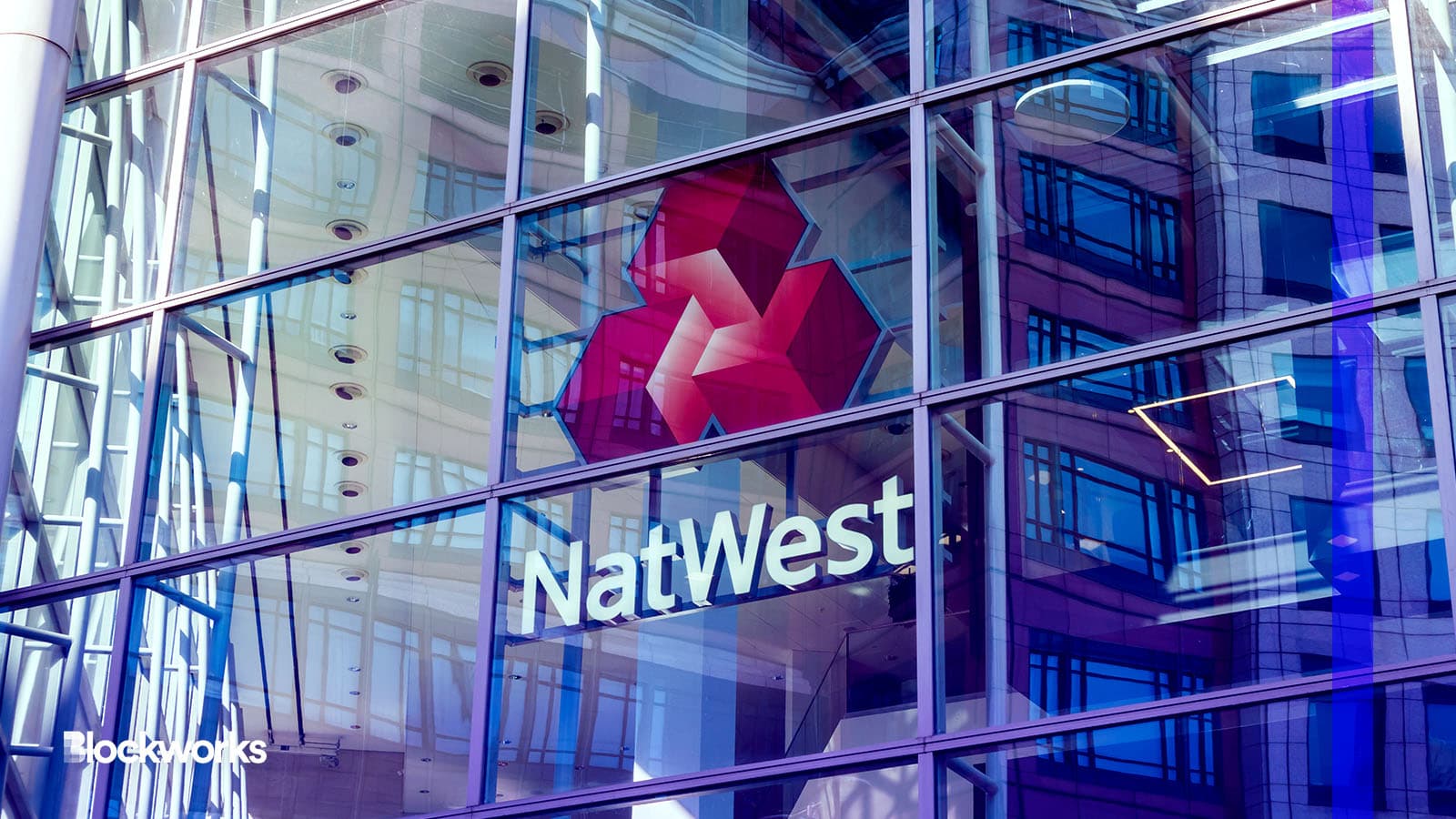UK’s NatWest, PaySafe Distance From Crypto as Banks Roil
It’s part of the ongoing arms race between financial progressives and the incumbent banking system, one expert told Blockworks Tuesday

Source: Shutterstock / Alex Yeung, modified by Blockworks
In light of the regulatory environment surrounding digital assets, one of the UK’s largest consumer banks, NatWest has placed restrictions on customers sending money to crypto exchanges.
The bank said Tuesday its daily and monthly limits of $1,200 and $6,000 are based on a need to “help protect consumers losing life-changing sums of money,” the Financial Times reported.
Paysafe, an online payments provider, has also announced it will wind down services to UK customers of Binance, the world’s largest crypto exchange by total volume.
The Binance provider of British pound deposit and withdrawal services terminated its services on Monday for new customers, with a full wind down for all UK users expected by late May.
NatWest and Paysafe represent a growing trend among financial institutions seeking to distance themselves from the nascent digital asset market following a tumultuous week for regional US banks.
Oliver von Landsberg-Sadie, founder of London-based digital asset financial services firm BCB Group, told Blockworks the decision can be viewed as “cryptophobia disguised as consumer protection.”
“It’s part of the ongoing arms race between financial progressives and the incumbent banking system,” he said. NatWest and Paysafe did not immediately respond to requests for comment.
Traditional versus digital
The recent collapse of Silicon Valley Bank, a prominent lender in the tech start-up scene, has caused panic, with some crypto executives and investors blaming centralized banking for the failure.
They purport government regulators, who had recently cracked down on crypto firms, are responsible for the bank’s downfall in a type of financial crusade designed to curb the influence of digital assets.
The banking agencies’ actions, namely those coming from the Federal Deposit Insurance Corporation (FDIC), are likely to have serious and lasting consequences, Fireblocks’ chief legal and compliance officer, Jason Allegrante, told Blockworks.
“Signature Bank is an example of how far the banking agencies appear willing to go,” he said. “Unlike SVB, which had legitimate balance sheet issues, there was no apparent balance sheet or liquidity crisis at Signature at the moment it entered receivership.”
Silvergate Bank, which had assets worth $12 billion, initiated voluntary winding down procedures on March 8, following a period of uncertainty. Soon after, on March 10, SVB with assets worth $200 billion was placed under the receivership of the FDIC.
State regulators then ordered the closure of Signature Bank, which had $100 billion in assets, just two days later. All three banks were popular among cryptocurrency enthusiasts.
The blame game has also exposed the factionalism in the tech industry, where crises can be used to advance agendas.
“We’ve seen other banks like Santander and Lloyds impose similar limits but they will never outpace the innovation coming from the blockchain industry,” Landsberg-Sadie said.
One major lesson learned is that not all banks are held to the same regulatory framework as others, Ilya Volkov CEO of Swiss-based international fintech platform YouHodler told Blockworks in an email.
“Silicon Valley Bank was not subjected to the Liquidity Coverage Ratio (LCR) as banks are in Europe,” he said.
LCR refers to a regulatory requirement for banks to maintain enough high-quality liquid assets on hand to cover their short-term liquidity needs in case of any financial stress or crisis.
In the US, the LCR wasn’t applied to SVB as it wasn’t considered a large enough bank — even though it was the country’s 16th-largest, Volkov added.
“As a result, the Federal Reserve is sending a message. If you are not one of the ‘big four’ banks, then you play by a different set of rules with limited protection,” he said.
Get the news in your inbox. Explore Blockworks newsletters:
- The Breakdown: Decoding crypto and the markets. Daily.
- 0xResearch: Alpha in your inbox. Think like an analyst.






